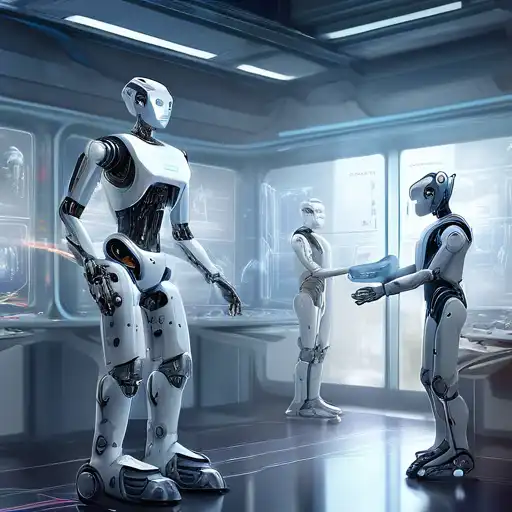The Dawn of a New Era in Robotics
The integration of Artificial Intelligence (AI) into robotics is setting the stage for a revolution that promises to redefine industries, enhance human capabilities, and solve complex problems. This fusion is not just about making robots smarter; it's about creating systems that can learn, adapt, and make decisions in real-time. The future of robotics, powered by AI, is here, and it's transforming the way we live and work.
Understanding AI Integration in Robotics
AI integration in robotics involves embedding machine learning algorithms and cognitive computing capabilities into robotic systems. This enables robots to perform tasks that require understanding, reasoning, and learning from their environment. From autonomous vehicles to robotic assistants in healthcare, AI is making robots more versatile and efficient.
The Impact of AI on Robotics
The impact of AI on robotics is profound. Here are some key areas where this integration is making a difference:
- Manufacturing: AI-powered robots are optimizing production lines, reducing errors, and increasing efficiency.
- Healthcare: Robotic surgeons and assistants are improving precision in surgeries and patient care.
- Agriculture: Drones and robotic harvesters are revolutionizing farming practices, making them more sustainable.
- Service Industry: From customer service bots to robotic cleaners, AI is enhancing service delivery.
Challenges and Opportunities
While the integration of AI into robotics presents immense opportunities, it also comes with challenges. Ethical considerations, job displacement concerns, and the need for robust AI governance frameworks are some of the issues that need addressing. However, the potential benefits, such as increased productivity, improved safety, and the ability to tackle complex global challenges, make this a journey worth pursuing.
Looking Ahead: The Future of AI-Integrated Robotics
The future of AI-integrated robotics is bright, with advancements in machine learning, neural networks, and computational power driving innovation. As robots become more autonomous and capable, we can expect to see them playing a pivotal role in space exploration, disaster response, and even creative industries. The possibilities are limitless, and the journey has just begun.
For those interested in the intersection of technology and innovation, the evolution of robotics through AI integration is a fascinating area to watch. It's not just about the technology itself but how it can be harnessed to improve lives and shape a better future.
